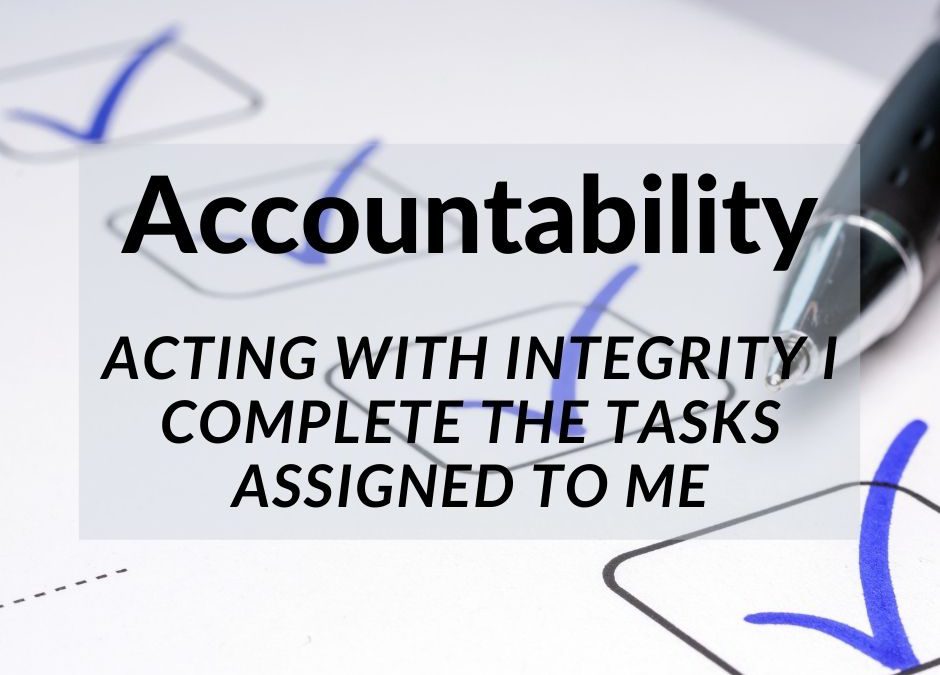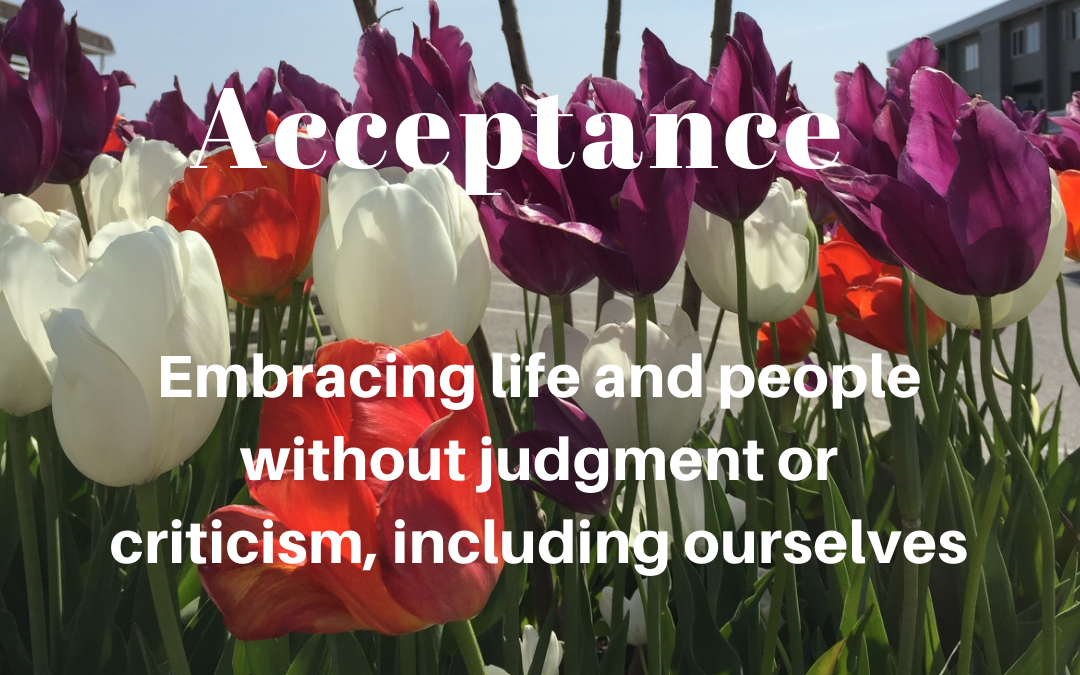
Accountability
Description
Accountability is a fundamental virtue that encompasses the willingness to take responsibility for our actions and decisions. It is about acting with integrity and honoring our commitments, ensuring that we follow through on what we say we will do. This virtue encourages us to face our mistakes with courage rather than hiding or avoiding them. Embracing accountability means being open to the valuable lessons that arise from our missteps and being ready to make amends when necessary.
In practicing accountability, we build trust with others. People know they can rely on us because we hold ourselves answerable for our actions and decisions. This reliability fosters deeper connections in all areas of life, from personal relationships to professional environments.
Moreover, accountability invites us to appreciate both our successes and the insights gained from our less favorable choices. It encourages a mindset of continuous growth, guiding us to uphold our highest standards and align our actions with our values. Ultimately, embracing accountability empowers us to become more responsible individuals, contributing positively to our communities and inspiring others to do the same.
Affirmations for Accountability
- I own my actions and their consequences.
Taking responsibility for what I do empowers me to learn and grow from my experiences. - I communicate openly about my mistakes.
Sharing my errors fosters trust and encourages a culture of honesty with others. - I set clear expectations for myself and others.
Establishing defined goals helps ensure that I and those around me understand our responsibilities. - I actively seek feedback on my performance.
Welcoming constructive criticism allows me to identify areas for improvement and reinforces my commitment to accountability. - I reflect on my decisions regularly.
Taking time to evaluate my choices helps me recognize patterns and encourages responsible future actions.
- I make amends when I’ve caused harm.
Apologizing and rectifying my mistakes demonstrates my commitment to integrity and respect for others. - I follow through on my commitments.
Completing tasks as promised builds trust and reinforces my reliability in relationships. - I practice self-discipline in my choices.
Staying true to my commitments and goals requires consistent effort and accountability to myself. - I hold myself accountable to my values.
Aligning my actions with my principles ensures that I remain true to what I believe in. - I learn from my failures and successes.
Embracing lessons from both my achievements and setbacks encourages a growth mindset and strengthens my accountability.
Quotes
“The greatest mistake we make is living in constant fear that we will make one. Accountability breeds response-ability.” – John C. Maxwell
“Accountability is not about blame. It’s about the ability to choose how we respond to our circumstances, to our behavior, and to the impact we have on others.” – Brené Brown
“I am not a product of my circumstances. I am a product of my decisions. Accountability is the key to empowering our choices.” – Stephen R. Covey
Accountability In Family Life
In family life, accountability is a cornerstone virtue that helps to foster trust, responsibility, and growth. For both parents and children, it means taking ownership of actions, decisions, and their consequences, and being willing to learn from both successes and mistakes. For parents, it involves setting a strong example by being responsible for their choices and honoring commitments, whether it’s meeting family expectations or fulfilling obligations outside the home. When parents model accountability, they demonstrate that owning one’s actions is not about perfection but about integrity and continuous learning.
For children, accountability is a skill that grows over time and is nurtured by the guidance of parents. It involves understanding that their choices have consequences and being willing to admit mistakes, apologize when necessary, and make amends. Children learn accountability when parents encourage them to own their actions while offering compassion and guidance rather than punishment or blame. By creating an environment where responsibility is valued and mistakes are seen as opportunities for growth, children develop a sense of ownership over their actions and a deeper understanding of how they contribute to family life.
In family dynamics, accountability helps establish a culture of trust. Parents and children alike benefit from knowing that they can rely on one another to follow through on promises, admit mistakes, and strive to do better. This shared understanding strengthens the bonds within the family, creating a supportive environment where everyone is empowered to grow and contribute to the well-being of the family unit.
Balancing Accountability
When practiced in balance, accountability serves as a powerful virtue in family life, fostering responsibility, trust, and growth. However, like all virtues, it can become either overemphasized or underdeveloped, which may lead to unnecessary stress or an avoidance of responsibility. To maintain accountability as a healthy, positive force, it is essential to cultivate virtues that help regulate it, ensuring that it is neither too rigid nor too lenient.
-
-
- Compassion: Compassion helps prevent accountability from becoming overly harsh or unforgiving, allowing for empathy and understanding when mistakes are made.
- Forgiveness: Forgiveness enables family members to move past errors without resentment, making it easier to embrace accountability without being bogged down by guilt or anger.
- Patience: Patience ensures that accountability is practiced with a sense of calm and understanding, acknowledging that growth and change take time.
- Humility: Humility allows individuals to accept their limitations and imperfections, which makes it easier to acknowledge mistakes and learn from them without pride getting in the way.
- Flexibility: Flexibility helps temper accountability by allowing for adaptability when circumstances change, preventing rigid expectations from causing unnecessary strain.
- Self-Compassion: Self-compassion ensures that while we hold ourselves accountable, we also treat ourselves with kindness, reducing the tendency to be overly self-critical when things don’t go as planned.
- Gratitude: Gratitude fosters a sense of appreciation for the efforts and lessons learned from accountability, turning mistakes into opportunities for growth rather than failures.
- Discernment: Discernment helps balance accountability by ensuring that responsibility is only taken for what is truly ours, avoiding unnecessary guilt or taking blame for things outside our control.
- Generosity: Generosity encourages a spirit of giving without expectation, which helps soften the rigid sense of obligation often associated with accountability and promotes healthy, unconditional relationships.
- Trust: Trust allows individuals to feel safe in being accountable, knowing that they will be supported in their efforts to make amends or improve without fear of judgment or rejection.
-
Maintaining balance in the virtues that complement accountability is crucial for creating a healthy, positive environment within the family. By moderating accountability with compassion, forgiveness, and humility, parents and children alike can foster a space of growth, support, and learning. A balanced approach ensures that accountability nurtures responsibility and personal development while also encouraging empathy and resilience, benefiting both individual well-being and the overall harmony of family life.
Joe is a husband, father, grandfather, author, speaker, educator, course creator, and parent/family coach.
He helps parents develop unity, find clarity, communicate, and develop consistency in their parenting with the Four C’s of Successful Families. You can find his work on social media.
In addition, the Four C’s newsletter is enjoyed by many as it encourages parents to self-care, build their relationships with their partners, and raise their children.
And he loves to golf!

